ROBIN FURTH – Interview
When people think of the famous author, Stephen King, the first thing that comes to mind usually is “horror”, Maine, all the great books he’s written, and film adaptations. However, there is another part most don’t hear too much of: the authors who write about King and his works.
Authors such as; Bev Vincent, Stephen Spignesi, and the late, Rocky Wood have all contributed wonderful books about the famous author, his stories, behind-the-scenes look, and even trivia books. There is another name to that list that is not heard often but in King fan circles: author Robin Furth. Robin is the author who got the chance of a lifetime: to work with Stephen King personally and bring his most famous book series to the forefront: The Dark Tower series.
The Dark Tower is Stephen King’s “swan song”, his epic that is the centerpoint that most of all his other books are spawned off of. It is a tale of the last Gunslinger of a fantasy place called “Mid World”. An apocalyptic desert wasteland that he must chase after The Dark Man and save the The Dark Tower from falling which would end all universes, time, and space. Along the way he makes friends, enemies, and has adventures that lead to the epic final chapter of the series. Stephen King’s other non-Dark Tower books, have connections to the series, characters places are mentioned in them, and it all connects in one way or another. It is huge, it is epic, and it is a major fan favorite of all his works. Robin Furth is the woman responsible to give King fans an exclusive look behind-the-scenes of The Dark Tower and it’s universe in her book: The Dark Tower Concordance.
However, before her dream job became a reality, you have to go back to the beginning. Robin Furth was born June 10, 1965. Raised in Upper Darby, Maine. Robin attended Upper Darby High and later attended the University of Pennsylvania. She traveled abroad during her life and taught Middle & High School. In 2000 landed the job of a lifetime: working for author Stephen King as research assistant for The Dark Tower series.
Robin is the author of The Dark Tower Concordance (a book dedicated to ALL things about the Dark Tower and the Mid World universe it’s based in including characters, places, events, locations, and even dialogue spoken there). Robin has been nominated for many writing awards including the Locus Award for Best Non-Fiction. She has brought the Dark Tower series to life with the comic book adaptations from MARVEL comics since 2007 and is currently being published today. Although a fan of poetry and supernatural fiction, it is the Dark Tower universe that is Robin’s love and passion which shows clearly through her work. Here is my exclusive interview with author of The Dark Tower Concordance and Dark Tower comics, Robin Furth!
(Q) You are originally from Philadelphia, however, you lived in Europe in your youth. What was it like for you living in another country? Did your love for books and reading begin there?
(A) It’s really interesting you should ask this. My family moved to Scotland when I was five so that my Dad could take a sabbatical year at the University of Glasgow. My first year of school (kindergarten in the US, primary one in the UK) was spent in the Scottish school system, and I learned to read there. I think their reading program was pretty intense, because by the time I reached first grade back in the US, I was a proficient reader. Anyway, I loved the Scottish reading classes I had. We’d all stand around the teacher’s desk and read from books. I’d get so excited that I’d jump up and down the whole time. But one day, when I was especially excited about the story we were reading, I forgot to put my legs back down. WHAM! I ended up on the floor. Pretty embarrassing, but it didn’t halt my love of reading! We moved back to Scotland when I was thirteen, although this time we moved to Aberdeen. That was the beginning of my hardcore reading habit. We lived in a village called Kemnay, and I spent hours walking the countryside there, thinking about books. I discovered Ursula LeGuin’s Earthsea books then, which probably cemented my love of fantasy. I also discovered Emily and Charlotte Bronte, which was fantastic.
(Q) What genres of books are you more a fan of and how does “horror” fit into that group for you?
(A) I’ve always been a fantasy junkie, but supernatural fiction of any kind has also always fascinated me. I love a lot of the older horror/supernatural authors such as M.R. James, Ambrose Bierce, Edgar Allen Poe, Arthur Machen, and William Hope Hodgson. Some of my female heroes are Angela Carter, who did a lot of modern renditions of fairytales, Helen Adam, who wrote Gothic ballads, and Shirley Jackson, who penned the brilliant The Haunting of Hill House. The horror I like best has a heavy dose of the supernatural and uncanny in it, which is why I love Steve King’s work so much. I think my love of supernatural and surreal fiction links back to my love of folklore and legend. The so-called “rational” world has never made much sense to me.
(Q)You spent your summers in Maine, home of Stephen King. While living with your grandparents there, did your love for King begin then or did that come later?
(A) I think my love of Stephen King’s work really began the summer I borrowed ‘Salem’s Lot from my older sister’s friend. I LOVED it. I remember sitting in my grandparents’ living room, reading after everyone else had gone to bed. It was so dark outside, and bats were flying past the window, nabbing the moths that were drawn to the light given off by my reading lamp. All of a sudden, as I was sitting there with the book on my lap and a blanket over my shoulders, I realized that Jerusalem’s Lot wasn’t all that far from where I was sitting. It scared me silly but it was great. What I continue to love so much about Steve King’s fiction is that he is able to so seamlessly weave the mundane world we know so well with the supernatural, eerie, and downright bizarre. That is an amazing talent.
(Q) At what point did your taste change from going into the medical field in college to writing? Do you feel that was the better road to take for you?
(A) I grew up in a medical family. My father was an M.D. who went into research and worked in a pathology department. My paternal grandfather was a pathologist, my paternal grandmother was a pediatrician, and my mom was a nurse. Friends of mine would have trouble eating dinner at my house, because often the dinner conversation would turn to unsavory subjects such as the treatment of tumors, or how an autopsy might be performed. Needless to say, I had a strong stomach from a young age! My paternal grandparents were Jews who fled Europe before the Second World War, but like so many of their generation they gave up religion for science. Because of this, science was incredibly important to them. When I was in college, my parents desperately wanted me to become a doctor, because that was the ultimate achievement for them. But I have always been artistic, and I knew I wouldn’t be happy going into medicine or the medical field. I have always wanted to be a writer and so that’s what I pursued. At times it has been very difficult—I remember how disappointed my dad was when I gave up biology to take extra English classes—but it was what I needed to do. For my parents, both born during the Depression, medicine meant a stable career, even during difficult times, whereas a career in the arts never gives any guarantees. The road hasn’t always been easy, and I see why my parents were so worried, but I’m glad that I made the choices that I did. At the end of her life, my mother was so proud of me. My dad is proud of me too.
(Q) You also were a teacher at one point. What subject did you teach and what was your experience teaching like for you?
(A) I taught language arts in a middle school and then English at an experimental high school. Both were in Maine. I loved the students and the subject, but it was so overwhelming that I had no time or energy left for creative work of any kind. I think most teachers must spend ten months of the year exhausted! I also think that teachers face a huge problem when it comes to juggling the interests of the kids and a love of literature with the demands of communities that want to ban books for religious or political reasons. I was incredibly lucky in that I was allowed to teach a range of books, and we had open-minded parents in our PTA, but not everyone is so lucky. If you take a look at lists of books that have been banned in different parts of the US, you’ll be SHOCKED at the number of classics on the list.
(Q) You landed the job of a lifetime and one Stephen King fans only dream of. Tell us how you got the job as research assistant to Stephen King and what was your very first reaction when you met him?
(A) I started working for Steve King while I was a graduate student at the University of Maine, back in 2000. It was the year after his terrible accident. At the time, Steve had already published On Writing and needed somebody to sort through the thousands of responses he’d gotten for his On Writing story competition. He wanted to help out a starving grad student so he contacted Burt Hatlen—one of my professors as well as one of Steve’s old advisors—and asked him to recommend someone. Burt knew that I was a published poet, that I loved fantasy and sci-fi, and that I was a fan of Steve’s work. Hence, he recommended me for the job. (I am forever in Burt Hatlen’s debt.) That original project lasted about a month. I did some of my work from home, some from the King office, but most of my contact with Steve at that point was through email. (Most of my work was with Steve’s assistant, the wonderful Marsha DeFilippo). At the end of that assignment I went into the office to pick up my final paycheck and met Steve King himself. I was really tongue-tied, but Steve was very relaxed and kind and asked me if I wanted more work. He was about to return to the Dark Tower series and needed someone to write up lists of characters and places and record the pages on which they could be found. (He wanted to be able to double-check for plot and character continuity—no small job for such a large body of work.) Anyway, when Steve asked whether I was interested in the job I said yes. (Of course!) Not only did I create a huge dictionary of characters and places and plot twists, but I recorded Mid-World games, Mid-World languages, Mid-World diseases, and pretty much everything else I could think of. I drew a door labeled THE AUTHOR which was supposed to help Steve reenter Mid-World. I placed the door at the front of the manuscript then I bound the whole thing in black and taped a key to the front. (The key was so Steve King could open the door.) I wasn’t certain how Steve would react to my wild enthusiasm, but he liked it enough to ask whether I wanted to continue working with his manuscripts. After that, I received draft chapters as Steve wrote them so that I could continue building my Dark Tower Concordance. I’ve been lucky enough to live in Mid-World ever since.
(Q) What is the best lesson learned over the year’s working with Mr. King?
(A) To have faith in myself and not to give up. That is a valuable lesson indeed!
(Q) Stephen King’s epic series, The Dark Tower went from the book shelves to the comic book shelves in 2007. What was that first year of Dark Tower comics like for you personally?
(A) It was a whirlwind! The collaboration between Stephen King and Marvel Comics really began in 2005, when Joe Quesada, Marvel’s Editor-in-Chief, mentioned at a comic book convention that he really wanted to work with Stephen King. Word eventually made it back to the King office and Chuck Verrill (Steve’s editor and agent) contacted Marvel. After many discussions everyone decided that the best book to adapt would be Wizard and Glass, since it tells the story of Roland’s adventures in Hambry, when he and his friends are fourteen years old. I was there at the original meeting between Steve, Chuck Verrill, and Marvel. (Well, I wasn’t there in body. I was there via phone link.) I’d spent so long in the Dark Tower universe that Steve thought it would be a good idea to have me on board for the Marvel project. I’d never worked in comics before but I loved graphic novels and illustrated books, so was excited about the whole thing. I also wanted to see Roland and his friends take on that extra dimension—to have faces and bodies which moved through space. As you can imagine, my initial learning curve was INCREDIBLY steep. But luckily for me, I was working with a terrific team of extremely experienced comic book folks. Peter David, Jae Lee, Richard Isanove, Ralph Macchio, and all the other editors and artists who have worked on the series, have been great. I’ve learned a tremendous amount from all of them.
(Q) Tell us about your first meeting with comic artist Jae Lee and Richard Isanove? What do you enjoy most about their work?
(A) The first time I met Jae Lee and Richard Isanove was at the NYCC comic book convention in 2007. However, I’d been in email contact with both of them since the comics project began in 2005, and I knew their work from other comics. Jae and Richard are both phenomenally talented artists in their own rights, but when they worked on those first Dark Tower graphic novels, they seemed to merge together seamlessly and create a third artist. It was that joint work that really created the images we have for Mid-World. Jae has an amazingly sense of design and I absolutely love his work. I think he has one of the most unique and beautiful line-drawing styles out there. Set me down in a comic book shop and I can pick out the Jae Lee covers without missing a beat. He is one of my favorite artists. I think he is one of Steve King’s favorites too, since he asked Jae to do the illustrations for the hardcover edition of The Wind Through the Keyhole. Richard is one of the best colorists in comics. His ability to catch the subtle gradations of a night sky, or the luminosity of water, or the brilliance of fire, takes my breath away. He is also a fantastic penciller. Richard drew and colored The Fall of Gilead, which was a fantastic arc.
(Q) You are also known as a big Narnia fan. Is it hard to chose between Narnia or Dark Tower’s Mid-World?
(A) I love Narnia and always will, but as an adult, the grittiness of Mid-World will get me every time!
(Q) What does Roland of Gilead mean to you?
(A) Wow—where to begin? He has been such a big part of my life that he’s almost a part of me now. He is Steve King’s character, but he’s so near and dear to my heart that I feel like a little corner of him is mine too. If we can be friends with characters from books, then Roland is my very close friend. I try not to make my husband jealous over the relationship!
(Q) What is your favorite Dark Tower book from the series and favorite character?
(A) My favorite DT book changes according to which one I’m reading! Each one has its own charm. I love The Gunslinger because of the way it sets up Roland’s story. I love the first line: “The man in black fled across the desert, and the gunslinger followed.” That’s classic! I love the way the first section is told in retrospect, and the way Steve King ties together separate stories to make the whole. Jumping forward to Wizard and Glass, my heart broke for Susan Delgado. For many years, that was my favorite DT book. The Little Sisters of Eluria is also a contender, since it is such an eerie story. The Little Sisters and their hospital tent full of drugged men hanging in white body slings still gives me shudders. In terms of the poetry of the story itself, I might choose The Wind through the Keyhole. To finally hear Roland’s voice recounting a tale was magnificent. As for my favorite characters, I’d have to say Roland, Cuthbert, Jake, and Susan Delgado. But then I feel guilty and have to add Eddie, Susannah, Alain, and Oy. Sigh.
(Q) Do you agree 100% with the ending of The Dark Tower: The Dark Tower?
(A) I liked the ending very much, but to tell the truth I don’t think it’s the end. Steve King will eventually return to Mid-World I’m sure, and Roland will return to his quest!
(Q) There are major Stephen King fans who take The Dark Tower very seriously. What is it about that long journey you feel attracts such a large fanbase?
(A) I really think that the Dark Tower’s powerful resonance is a direct result of the mythic underpinnings of the tale. On the one hand, Dark Tower draws upon the story of King Arthur and his quest for the grail. On the other, it draws upon the myth of the American West. There is a definite sense of dystopia in the books. After all, Roland’s world can be interpreted as a future version of our world, only one that has been faced by an apocalypse of some sort. And then there’s Roland himself. The name Roland appears in so many folktales and legends, from Jack Rowland, who saved his sister and brothers from the King of the Hill (the fairy king), to Roland of Browning’s famous poem, to the hero of The Song of Roland. Within the Dark Tower novels, there’s also the promise that a world that has been ruined can be renewed again, as in the tale of the Fisher King, also found in the Arthurian story cycle. All of these factors give the Dark Tower novels a profound appeal.
(Q) What was your first Stephen King book you ever bought and how old were you?
(A) When I was fourteen years old my older sister’s friend lent me Salem’s Lot, and I was hooked. I then borrowed The Stand from another friend. However my first exposure to Stephen King was the movie Carrie. I was probably too young (I must have been about nine), but my mother took me to see it anyway. I was amazed that someone had written a story about telekinesis, and about psychic powers in general. Psi abilities fascinated me at that point in my life (and still do). I remember walking out of the theater thinking, “Wow! I’m not alone! Other people like the stuff that I like!”
(Q) During your research for The Dark Tower Concordance books, what fact or information did you discover that you never knew before? What surprised you the most digging deep into Mid-World?
(A) I think what surprised me the most was just how rich and deep the folkore of the place was, and how many tiny seed stories Steve King dropped into the narrative. If Steve decided to complete all of the seed stories in the book, the series would have to be twice as long!
(Q) You also worked on the comic book version of 2009′s The Talisman. The series stopped after 5-issues. What happened and will we ever see that adapted to comic form in the near future?
(A) Unfortunately, that adaptation was the victim of the economic downturn. Barnes and Noble drastically cut back the number of graphic novels they ordered that year (after promising to order about double the amount). As a result, many books were cut, and Talisman was one of them. The Talisman remains one of my favorite books, so I would love to get the chance to do it again some day!
(Q) You have been named as one of the great Stephen King contributors along with Bev Vincent, Stephen Spignesi, & Rocky Wood. How does that make you feel falling into such great company and have you met these other contributors before?
(A) It’s a great honor to be considered alongside these brilliant folks. I know Bev personally and admire his work. He’s a great guy! I considered Rocky a friend and was so sad to hear of his passing. I only know Stephen Spignesi through the Internet (Facebook is a wonderful thing), but I love his work.
(Q) What changes did you make to the Dark Tower comics to make it your own as opposed to Kings original text?
(A) I try my best to stay true to the Dark Tower Universe as created by Stephen King. Sometimes I have to freewheel a little bit, especially when I delve into a character’s history and have to go into a lot more detail than is shared or even hinted at in the books. I’m always nervous about doing this, but Stephen King is very supportive, which helps a lot!
(Q) So many Stephen King fans want adatptations to be as close to the book as possible, how do you handle the pressure to keep the fans happy?
(A) It’s very tough! I do my best to stand and be true, and to remember the face of my (symbolic) fathers. Most fans are really supportive of the comics, which is fantastic. It’s great to meet folks at comic book conventions who want to discuss both the comics and the novels and share their hopes about future Dark Tower films. Some folks do want incredibly strict adaptations, so they will sometimes be disturbed by the comics and by how the comics sometimes deviate from, or add to, the novels. However, both Marvel and Stephen King agreed that the comics should include new material, since we are covering aspects of the story not told in the original novels. To those who want strict adaptations, I remind them that the comics don’t operate on the same level of the Tower as the novels. Hence, things will be a little different!
(Q) What was your main goal you wanted to achieve about these comics?
(A) I wanted to spin interesting, fun, and (hopefully) moving tales. I wanted to make readers out there happy, since so many books and comics over the years have given me sustenance and joy. (I’d like to return that favor.) But my greatest goal has always been to satisfy sai King, and to make sure that he feels comfortable having the comics as part of the greater Dark Tower universe.
(Q) How long does process take for each issue from start to finish?
(A) Depending on the story we’re adapting or creating, it can take me between two and five months to write an entire comic book arc (what will eventually become a graphic novel), and to break it down into panels and pages. It then takes the artist between one and two months to pencil each issue. (Sometimes it takes longer if we’re trying to create a new “look” for the book.) As penciled pages are finished and approved, they go to the colorist. Peter David can’t script the dialogue and captions until he has both my outline and the finished pencils, since he needs his dialogue and captions to fit the action on the page. Peter is amazingly talented though. He can script pretty quickly, which is great. After the pages are finished and the script is done, each issue has to be lettered. So, as you can see, the process is quite long and involved! We tend to work on one issue at a time. (The pencillers like to have finished drawings for one issue before doing rough sketches for the next if they can.) Once the issues are hitting the stands each month deadlines get tight, so we try to work at least a month in advance if we can. Unfortunately, we’re sometimes up against the wall in terms of deadlines.
(Q) What is your greatest moment so far with the success of The Dark Tower comics & the Dark Tower Concordance books?
(A) My greatest moment with the Dark Tower Concordance was when Stephen King told me how much it helped him to finish the series and then to write The Wind Through the Keyhole. My greatest moment with the comics was being nominated for an Eisner Award, a Harvey Award, and a Locus Award.
(Q) To date, there are 16 Dark Tower comic book titles. Will we see the whole book series in comic book form..eventually?
(A) I hope so!
(Q) With MARVEL’s HUGE success with the superhero comic book films, will we ever see The Dark Tower on the big screen?
(A) Right now things are looking good! The script written by Akiva Goldsman and Jeff Pinkner has funding from Sony and MRC, so I’m keeping my fingers crossed!
(Q) I talk with a lot of Stephen King fans everyday and some have agreed; with the success of The Dark Tower comics and The Stand a few years back – Will we see future King books adapted into comics and if so which one would you like to see adapted?
(A) I’d love to see more King comics in the world. I’d love to see a comic book version of Insomnia, since it would be fascinating to see someone draw the little bald doctors. Even though IT is being remade as a film, I’d love to see it done as a comic book.
(Q) When will Susannah/Odetta Dean have her own tale told in the comic book series?
(A) If all goes well, yes!
(Q) Final Question, What’s next for Robin Furth?
(A) I’m working on an original graphic novel. I also have a prose novel that needs a final edit. So, I hope to keep busy! Thanks Tony!
I want to Thank Robin Furth very much for this over-sized and informative interview. I appreciate her time and patience and if you want to buy or read any of Robin’s Dark Tower Concordance books or comic book adaptations you can visit Amazon to find the full collection for sale. Thank you Robin for this wonderful interview!


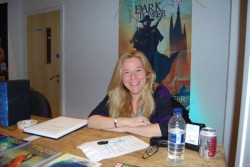
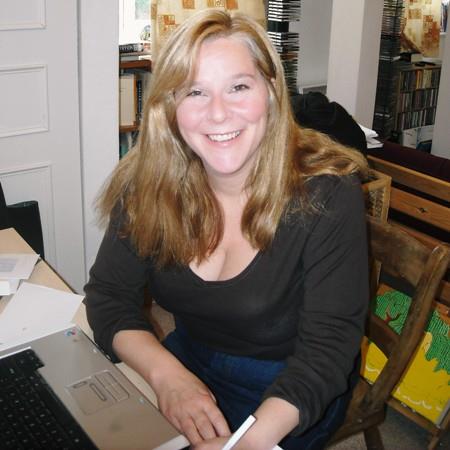
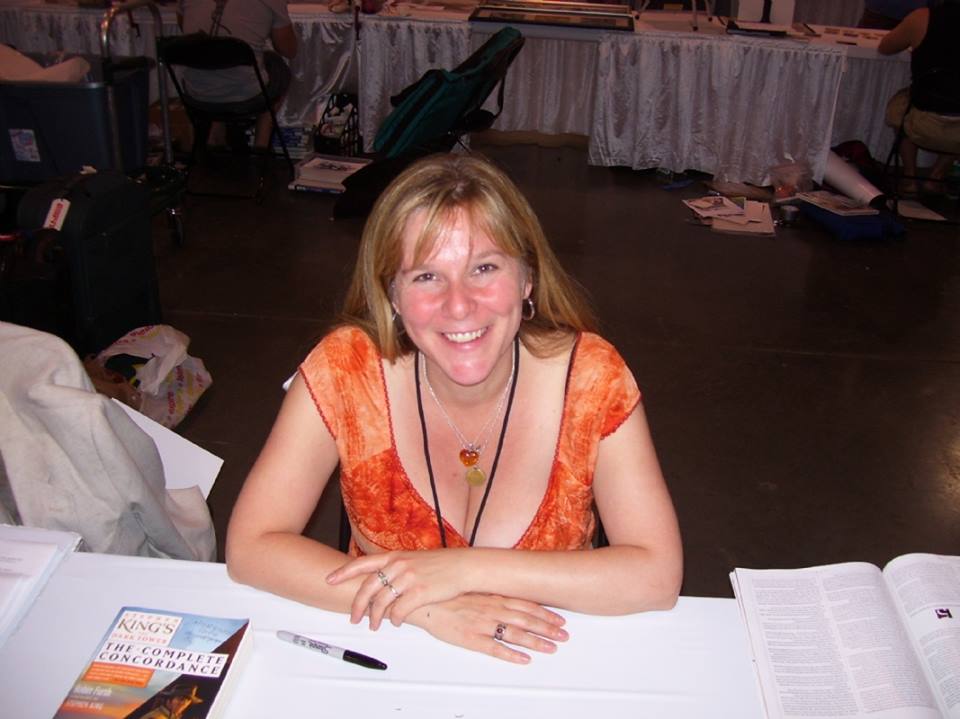
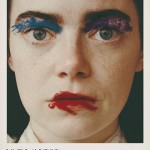
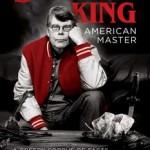

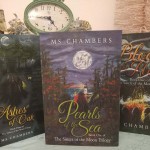 THE SISTERS OF THE MOON Trilogy – Samantha Chambers
THE SISTERS OF THE MOON Trilogy – Samantha Chambers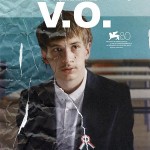 (Italiano) UNA SPIEGAZIONE PER TUTTO – Gábor Reisz
(Italiano) UNA SPIEGAZIONE PER TUTTO – Gábor Reisz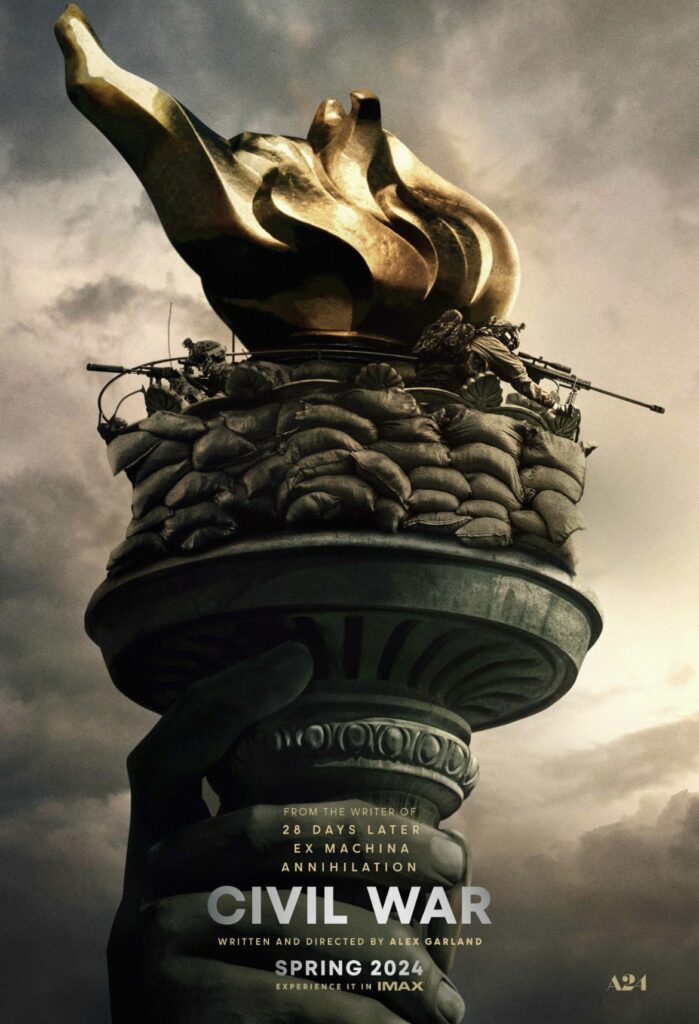 (Italiano) CIVIL WAR – Alex Garland
(Italiano) CIVIL WAR – Alex Garland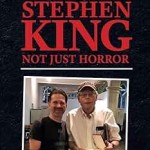 STEPHEN KING NOT JUST HORROR – Hans-Ake Lilja
STEPHEN KING NOT JUST HORROR – Hans-Ake Lilja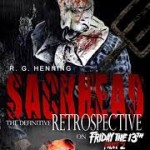 SACKHEAD:The Definitive Retrospective on FRIDAY THE 13th PART 2 – Ron Henning
SACKHEAD:The Definitive Retrospective on FRIDAY THE 13th PART 2 – Ron Henning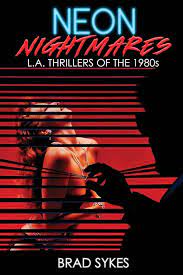 NEON NIGHTMARES: L.A. Thrillers Of The 1980′s – Brad Sykes
NEON NIGHTMARES: L.A. Thrillers Of The 1980′s – Brad Sykes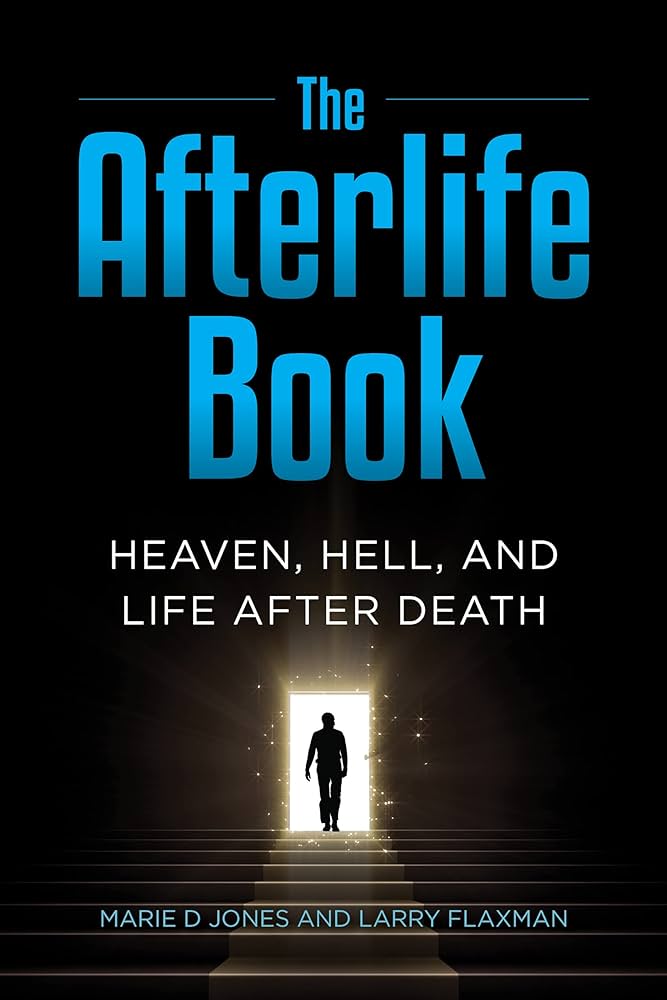 THE AFTERLIFE BOOK: Heaven, Hell, And Life After Death – Marie D. Jones & Larry Flaxman
THE AFTERLIFE BOOK: Heaven, Hell, And Life After Death – Marie D. Jones & Larry Flaxman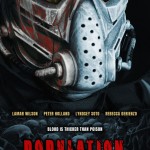 POPULATION PURGE – Brian Johnson
POPULATION PURGE – Brian Johnson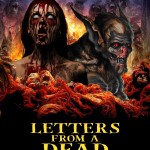 LETTERS FROM A DEAD WORLD – David Tocher (review & interview)
LETTERS FROM A DEAD WORLD – David Tocher (review & interview)